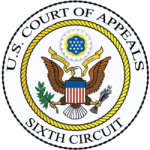 The Sixth Circuit in Stadnyk v. Commissioner affirmed the Tax Court’s holding that a couple was liable for income tax on settlement proceeds received by the wife, finding that the proceeds qualified as gross income and were not excludable under section 104(a)(2) because the claims underlying her lawsuit were not related to a physical injury.
The Sixth Circuit in Stadnyk v. Commissioner affirmed the Tax Court’s holding that a couple was liable for income tax on settlement proceeds received by the wife, finding that the proceeds qualified as gross income and were not excludable under section 104(a)(2) because the claims underlying her lawsuit were not related to a physical injury.
The claims arose out of a purchase of a used 1990 Geo Storm from an auto dealership. The couple purchased the car making two payments using two separate checks. After the couple drove the car off the lot, the car broke down approximately seven miles from the dealership. The repairs required for the car amounted to $479.78. The couple purchased the car for $3,430.00. Mrs. Stadnyk contacted her bank to stop payment on one of the checks indicating a dissatisfied purchased. However, the bank incorrectly stamped the check “NSF” for insufficient funds and returned it to the auto dealership. The dealership filed a criminal complaint against the wife who was subsequently arrested at her home in the presence of her husband, daughter, and a family friend. After being handcuffed and transferred to county jail she was released on bail in the early morning. She testified that she did not suffer any physical injury as a result of her arrest or detention.
After filing a complaint against the dealership owner, the dealership, and the bank, Mrs. Stadynk entered into a mediation agreement with the bank under which she received $49,000 and a written apology. However, the agreement did not state the purpose for which the payment was paid. During trial she testified that her attorney, the attorney for the bank, and the mediator advised that her settlement proceeds would not be subject to income tax. Therefore, the Stadnyks did not report the settlement proceeds on their tax return although the bank issued a 1099-Misc reporting the payment. The commissioner issued a notice of deficiency and assessed an accuracy related penalty.
First, the Sixth Circuit held that the settlement payments were gross income under section 61. Mrs. Stadnyk argued that the settlement award was not income under section 61 because she was merely made whole and not enriched by the compensatory damages. However, the Sixth Circuit stated that the Supreme Court has repeatedly upheld the broad concept of gross income under section 61. Further, the court stated that if damage awards received on account of personal injury were not income, there would be no need for the exclusion set forth in section 104(a)(2), which exempts damages received on account of personal physical injuries or physical sickness from income taxation.
Second, the court held that the settlement amount was not excluded from income under section 104(a)(2). Under the first prong of the section 104(a)(2) analysis, the court determined that Mrs. Stadnyk’s claims against the bank giving rise to her recovery were based on tort or tort type rights. After reviewing the complaint, the court determined that alleging tort claims such as malicious prosecution, abuse of process, false imprisonment, defamation, and outrageous conduct, was sufficient to meet the first prong of the analysis.
However, under the second prong of the analysis, the court held that Mrs.Stadnyk did not sustain the damages on account of personal physical injuries or sickness and thus the settlement proceeds were not excludable under section 104(a)(2). The court stated that Mrs. Stadnyk had testified that she did not suffer any physical injury as a result of her arrest and detention and under Kentucky law, physical injury is not a required element of a false imprisonment claim. Thus, although Mrs. Stadnyk may have been physically restrained for an extended period of time, no physical injuries were sustained. Therefore, the court affirmed the tax court’s holding and found that Stadnyk’s owed income taxes on the damages award received pursuant to the settlement with the bank.